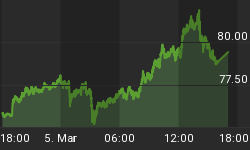It's starting to look like Chinese labor has had enough. Led by workers at the Honda Motors plant in Zhangshan, and perhaps spurred by the suicides of ten workers this year at Foxconn Technology (a supplier to high technology companies such as Apple, Dell, and Hewlett-Packard), Chinese factory workers and other laborers across the country are going on strike. In so doing, these workers are defying the orders of their government-run unions and risking dismissal by their employers. I believe that this monumental step in the development of China's economy will result in a positive outcome. From an international perspective, these strikes may do more than improve working conditions in Chinese factories; they may, in fact, force a currency reform (long-delayed by the Chinese Communist Party) that will have serious implications for the global economy.
Since at least 2001, when China acceded to the World Trade Organization and accelerated its dramatic export-led growth, American businesses and workers have complained bitterly that Chinese manufacturers enjoy an unfair advantage by virtue of the PRC's currency manipulation. The argument - which Americans also alleged against the Japanese in the 1970s and '80s - is that by inflating its currency, the government of China is deliberately keeping the prices of its goods low, thereby taking market share from US businesses and jobs from US workers.
The Economic Policy Institute recently estimated that the United States lost 2.4 million jobs since 2001 to China alone. Economist Peter Morici estimated that the US economy would likely be $1 trillion larger than it is now were it not for our trade deficits with China.
For years, the Chinese government has steadfastly refused to allow its currency to float freely, fearing that a higher yuan would choke off exports, leading to slower economic growth. There was a brief respite a few years ago, when the People's Bank of China allowed the yuan to appreciate by approximately 20% from July 2005 to July 2008. However, the Chinese government has generally taken the approach that it will not bow to external pressures, but rather manage its currency in accordance with China's own internal needs.
This situation has led to increased tension in Sino-American relations. The US recently came close to branding China a "currency manipulator," a label which implies the threat of trade sanctions. And once again, Beijing reiterated its policy of not succumbing to foreign influences in managing the yuan. As of this writing, the dollar-yuan exchange rate remains fixed.
But with Chinese workers now striking across their industrial heartland, China's internal pressures are beginning to exceed the anemic pressure brought by Washington. This may finally push the Communist Party toward reform.
Officials in Beijing know that, in reality, the Chinese workers are not striking against management, as we might expect in the West, but against the ruinous inflation caused by the People's Bank of China (PBoC). In order to maintain the 'peg' of the strengthening yuan to the weakening US dollar, the PBoC has been forced to print new money in lockstep with the Federal Reserve. Since the start of the financial crisis, the Federal Reserve has more than doubled the number of dollars in circulation. This inflation, exported to China via the peg, has resulted in frothy real estate prices in some Chinese markets, as well as consumer prices increasing at a rate of more than 3% per year (and probably much higher, given the propensity for all governments to systematically understate this data). According to the Washington Post, there is widespread "frustration among younger, urbanized workers that their wages have stayed relatively meager even as prices all around them -- particularly for housing -- have soared."
With over one billion citizens, the Chinese government cannot afford widespread unrest. They must find a way to nip their labor issues in the bud. The best policy approach would involve yuan revaluation. By reducing the rate of inflation of the Chinese yuan, the purchasing power of the yuan will increase, thereby allowing Chinese workers to better enjoy the fruits of their labor. As living standards rise, worker unrest will subside, and the impetus to strike will vanish.
In this way, raising the value of the yuan will relieve both internal (labor) and external (foreign government) pressures; it is an elegant solution to a seemingly complex problem.
In the short-term, employers have already agreed to wage hikes, in order to placate their employees. But in the long-term, the best answer is for the Chinese to stop inflating their currency and allow their workers to enjoy a (much deserved) higher standard of living - while silencing their foreign critics.
For in-depth analysis of this and other investment topics, subscribe to The Global Investor, Peter Schiff's free newsletter. Click here for more information. Click here for a description of Peter Schiff's best-selling, just-released book, How an Economy Grows and Why It Crashes.
Please note: Opinions expressed are those of the writer.
















